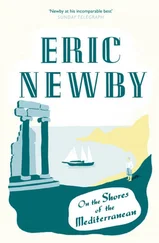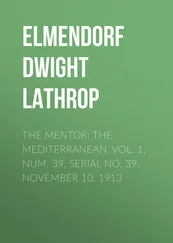W.h.g. Kingston - The Pirate of the Mediterranean
Здесь есть возможность читать онлайн «W.h.g. Kingston - The Pirate of the Mediterranean» — ознакомительный отрывок электронной книги совершенно бесплатно, а после прочтения отрывка купить полную версию. В некоторых случаях можно слушать аудио, скачать через торрент в формате fb2 и присутствует краткое содержание. Год выпуска: 0101, Жанр: foreign_antique, foreign_prose, на английском языке. Описание произведения, (предисловие) а так же отзывы посетителей доступны на портале библиотеки ЛибКат.
- Название:The Pirate of the Mediterranean
- Автор:
- Жанр:
- Год:0101
- ISBN:нет данных
- Рейтинг книги:4 / 5. Голосов: 1
-
Избранное:Добавить в избранное
- Отзывы:
-
Ваша оценка:
- 80
- 1
- 2
- 3
- 4
- 5
The Pirate of the Mediterranean: краткое содержание, описание и аннотация
Предлагаем к чтению аннотацию, описание, краткое содержание или предисловие (зависит от того, что написал сам автор книги «The Pirate of the Mediterranean»). Если вы не нашли необходимую информацию о книге — напишите в комментариях, мы постараемся отыскать её.
The Pirate of the Mediterranean — читать онлайн ознакомительный отрывок
Ниже представлен текст книги, разбитый по страницам. Система сохранения места последней прочитанной страницы, позволяет с удобством читать онлайн бесплатно книгу «The Pirate of the Mediterranean», без необходимости каждый раз заново искать на чём Вы остановились. Поставьте закладку, и сможете в любой момент перейти на страницу, на которой закончили чтение.
Интервал:
Закладка:
“What were you saying to the boatman?” he asked in an angry tone.
“I was making arrangements with him to take you on shore, signor, and do your bidding,” was the answer.
“Well, he may land me at once,” said the Greek. “Paolo, do you remain on board till I send for you, and let not a man quit the vessel on any excuse,” he whispered. “Such provisions as they require, the boatman can bring off for them, and I will manage to make him faithful.”
The Greek, without further remarks, swung himself over the side of the vessel and took his seat in Manuel’s boat.
“Hist, Manuel,” he said, in the lingua Franca, well understood by the Maltese boatmen; “you are debating in your mind whether you will inform the authorities that a suspicious character has landed on the island, and get a reward from them, or whether you will take the chance of pocketing what my generosity may induce me to bestow. Now, mark me, my honest friend. In the first place, I could get you hung for a little transaction, of which you know.”
The boatman started, and looked round with a suspicious glance.
“Que diavolo, who can this be?” he muttered.
“In the second, remember the English do not detain a man on bare suspicions, and but shabbily reward an informer. On the other hand, twenty colonati are yours, if you do my bidding. I do not want an answer – you are not a fool. Now row on shore as fast as you can.”
The Greek was a judge of character; and he seemed not to be altogether unacquainted with Manuel, the boatman. The boat ran into the public landing-place, and he stepped on shore with an independent and fearless air, where he mingled among the busy and motley throng who crowded the quay. The boatman, Manuel, sat in his boat a little distance from the shore, watching him, and ready, apparently, to obey his orders when he should be required.
The Greek proceeded onward through the lower parts of the town, eyeing those he passed with a quick keen glance, which seemed to read their very thoughts. People were too much accustomed to see the varied costumes of the East to regard him with unusual curiosity, or to incommode him in his progress by stopping to stare at him; at the same time that many remarked him as he slowly sauntered on and wondered whence he had come. He seemed to have nothing more to do than to amuse himself by viewing the city, though he had certainly not selected the most interesting or cleanest quarter. He apparently was a stranger to the place, by the way in which he hesitated at each crossing, which turning he should take, till he had carefully deciphered the name on the wall. Now he stopped to look into a shop, then to gaze up at the windows of a house as if he expected to see some one there, and then to throw a copper to some importunate beggar. He walked with an air of so much independence and nonchalance, indeed, at times, almost of haughtiness, that it was difficult to suppose he had the slightest apprehension of danger. Not a person, however, who, passed him, escaped his scrutiny; and even when he appeared to stop carelessly, or for the sake of considering the way he was to take, he cast a hurried glance behind him to satisfy himself that no one was acting the spy on his movements. He had evidently seen enough to convince him that the vessel, in which he had come, was in bad odour, and he naturally concluded that her passengers would be narrowly watched. Of the crowds who passed, not a human being seemed to know him, and if he was in reality particularly observed, it was done so cleverly and so cautiously, that with all his ingenuity, he failed to discover whether such was the case or not. He had already traversed a number of streets – ascending several flights of steps and descending others – when, at the corner of a narrow lane, his eye fell on a squalid-looking beggar who was lustily calling on the passers-by, in the name of all the saints, to preserve him from starvation. A broad-brimmed hat with a crown similar to those worn by Italian bandits, but sadly battered and brown with age and dirt, was worn slouchingly on his head, so as almost to hide his features, which were further concealed by a handkerchief tied under his chin, and a black patch over one of his eyes. A tattered cloak, the cast-off finery of a dandy of the palmy days of the old Knights of Malta, covered his shoulders, as did, in part, his legs, a pair of blue cloth trousers, through which his knees obtruded, and which were fringed with torn stripes at the feet. Such of his features as were visible were as ill-favoured as well could be. His voice, too, had a peculiarly disagreeable tone, as in the lingua Franca of the Maltese mendicants he begged for alms.
This interesting personage was supporting himself carelessly on a pair of crutches, while he rested on one foot, and stretched forth the palm of his right hand to grasp whatever might be put into it. The Greek stopped and put his hand into his pocket to draw out a piece of money, while he did so narrowly eyeing the beggar. The man’s voice changed instantly that he saw the stranger looking at him; from a half whining yet impudent tone, it began to sink and tremble with alarm, and finally he became perfectly mute and forgetful of his calling.
“I thought you would know me,” said the Greek. “And you must remember I never forget those I have once seen either as friends or foes.”
“No, signor, I perceive you do not,” replied the beggar, trembling with alarm. “Have mercy on me.”
“That depends upon yourself,” said the stranger. “At present, you deserve no mercy at my hands; but I will now give you an opportunity of serving me; and if you do so faithfully, I will overlook the past.”
“You are very generous, signor – you always were,” exclaimed the beggar, trying to fall down and embrace his knees, which the Greek prevented. “I will go to any part of the world. I will go through fire and water to serve you.”
“You have not to go far to perform my directions; but I want faithfulness in the discharge of the duty I shall impose on you,” said the Greek, sternly. “And, mark me, Giacomo – if you play me false, as you have done others, I will find you out, and finish your worthless life with as little compunction as I would that of a rabid dog.”
“Si, signor capitan, I very well know that you are not a man to be trifled with,” answered the beggar, bowing his head.
“Tell me what you want, and by the Holy Virgin and all the saints in heaven I will perform the work faithfully.”
“Your oath is superfluous, as you would break it for a copper-piece, so don’t insult me with it,” replied the Greek, scornfully. “But, listen: there is a certain Jew – Aaron Bannech by name – his office – his den – the place where he cheats, and robs, and lies, is beneath the Albergo – in the Strada. Do you hear?”
“Si, signor, si, – I know the place – I know the man,” said the beggar, hastily.
“You know him; it is well that you should – you are an admirable pair. He would sell his soul for a dollar, and would then try to cheat the devil out of it. You are a meaner knave. Half that sum would buy you. You both are useful to me, though. Hasten to him, and tell him that I am here. Say that he must clear out his den of visitors, clerks, or other prying knaves, and that I will be with him in half an hour. When you have done this, go down to the port, and learn what vessels are about to sail, shortly, for the eastward, with all particulars about them – their cargoes – armed force – and number of men – also what ships are expected to arrive shortly from the same quarter. Having gleaned this information, which you well know how to do, come up with it to the residence of the Jew. Listen, also, if anything is said about the Speronara Volante, from Syracuse, by which I arrived. Alessandro is her master – or, if any remarks are made respecting me. I am, probably, unnoticed; but it is as well to be cautious.”
Читать дальшеИнтервал:
Закладка:
Похожие книги на «The Pirate of the Mediterranean»
Представляем Вашему вниманию похожие книги на «The Pirate of the Mediterranean» списком для выбора. Мы отобрали схожую по названию и смыслу литературу в надежде предоставить читателям больше вариантов отыскать новые, интересные, ещё непрочитанные произведения.
Обсуждение, отзывы о книге «The Pirate of the Mediterranean» и просто собственные мнения читателей. Оставьте ваши комментарии, напишите, что Вы думаете о произведении, его смысле или главных героях. Укажите что конкретно понравилось, а что нет, и почему Вы так считаете.












